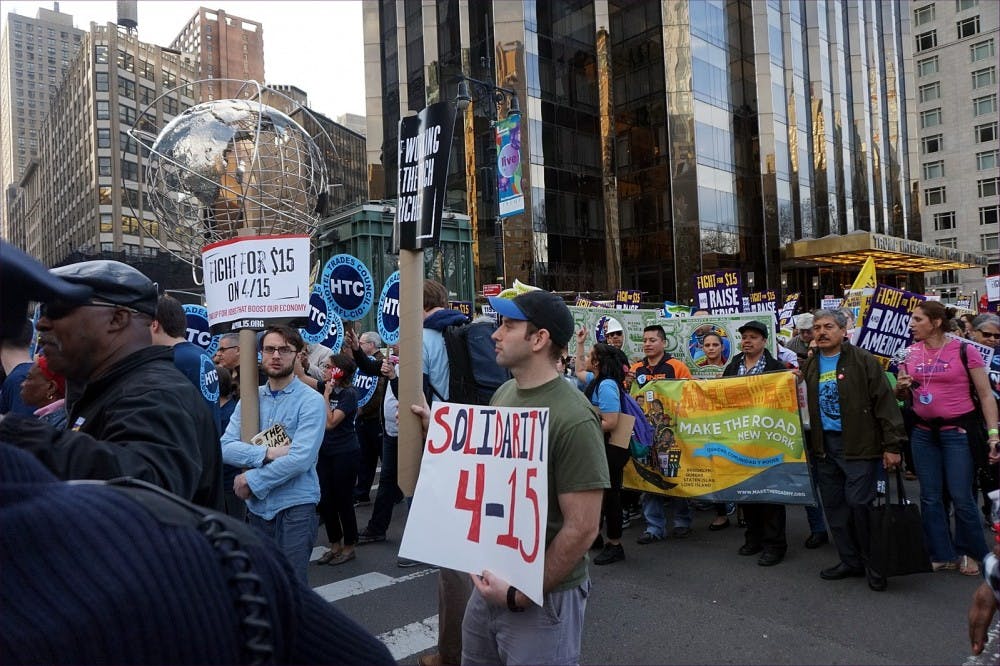The minimum wage in Virginia currently sits at $7.25 per hour, consistent with the federal minimum wage and tied for lowest in the country. This rate, already egregiously low, only continues to fall in value due to inflationary forces in the economy. Prices have risen between 1.5 and 2.5 percent over the last decade or so, eroding the real value of the minimum wage and making it ever harder for the most financially vulnerable workers to make ends meet. In 2009, congress raised the minimum wage from $6.55 to $7.25 an hour, and yet the real value of the wage in 2009 dollars is now $6.13, less than before the most recent increase. This has led some to call for a one time increase to the minimum wage, to recoup the lost value. That solution is only temporary, and would put us in the exact same predicament a few years down the road as the relentless march of inflation continues to cut into wages. First and foremost, we must stop the bleeding by automatically indexing the minimum wage to inflation.
$7.25 an hour simply cannot buy as much today as it could 10 years ago, when the wage was last raised. While workers receive the same wage in nominal terms, rents, groceries, fuel, utilities and other essential goods become relatively more expensive, bit by bit due to inflation. As a result, workers paid the federal minimum wage from 2009 to 2018 have effectively become increasingly poorer as a result of broader economic forces outside their control. This compounds with the growing costs of living in the most populous regions in Virginia, which paints a dire economic picture for many low-income workers. However, this problem is equally solvable as it is serious. By indexing the minimum wage to inflation, Virginia can keep minimum-wage workers from having having the real value of their paychecks cut every year.
This is by no means a novel idea — 18 states and Washington, D.C. already automatically index their minimum wage to some degree. The idea cuts across ideological lines, with states seemingly disparate as Montana and New Jersey choosing to index their wage to inflation. Further, a number of federal programs such as Social Security and Disability Insurance automatically increase along with inflation, recognizing that the rising cost of living can threaten vulnerable populations if not addressed. Plenty of jobs, especially salaried positions, include automatic cost of living adjustments for that very reason. Virginia’s minimum wage is well behind the curve. It is not that there is a lack of understanding of how inflationary forces impact the bottom line of minimum-wage workers, it’s that there is a lack of will to correct the issue.
Minimum-wage jobs are admittedly a small piece in the broader economic puzzle. And yet, for many workers they serve as an entry point to the workforce. Every year it appears less and less attractive, as wages fail to keep up with living expenses. This has a demonstrable impact on the economy, leading to labor crises and, in Virginia, pushing workers across state lines as they chase better paying jobs in D.C., Maryland and West Virginia. Indexing the minimum wage to inflation would at the very least keep wages up to par with the cost of living, and in the long run keep talented and much needed workers from fleeing Virginia.
In response to this worsening issue, a number of politicians and activist groups have called for an increase in the minimum wage, most notably the “Fight for 15” movement that has garnered some traction in recent years. While it is no doubt important to recoup the losses suffered by low-wage workers, these increases must be paired with inflation indexing. Otherwise, we continue to simply punt the issue down the road, leaving others to periodically retread the same ground in a Sisyphean fashion.
For workers whose only choice is a minimum-wage job, the year to year erosion of paychecks makes simply surviving an ever more difficult feat. In truth, minimum wage jobs are some of the only positions that have yet to automatically incorporate cost of living increases. Averaged across the economy, other wages have more or less tracked along with inflation. In that sense, it is counterintuitive that we subject the most vulnerable workers to periodic real pay cuts, on top of their already precarious position. Virginia, and the federal government more broadly, must index the minimum wage to inflation.
Brendan Novak is an Opinion Editor for The Cavalier Daily. He can be reached at b.novak@cavalierdaily.com.







